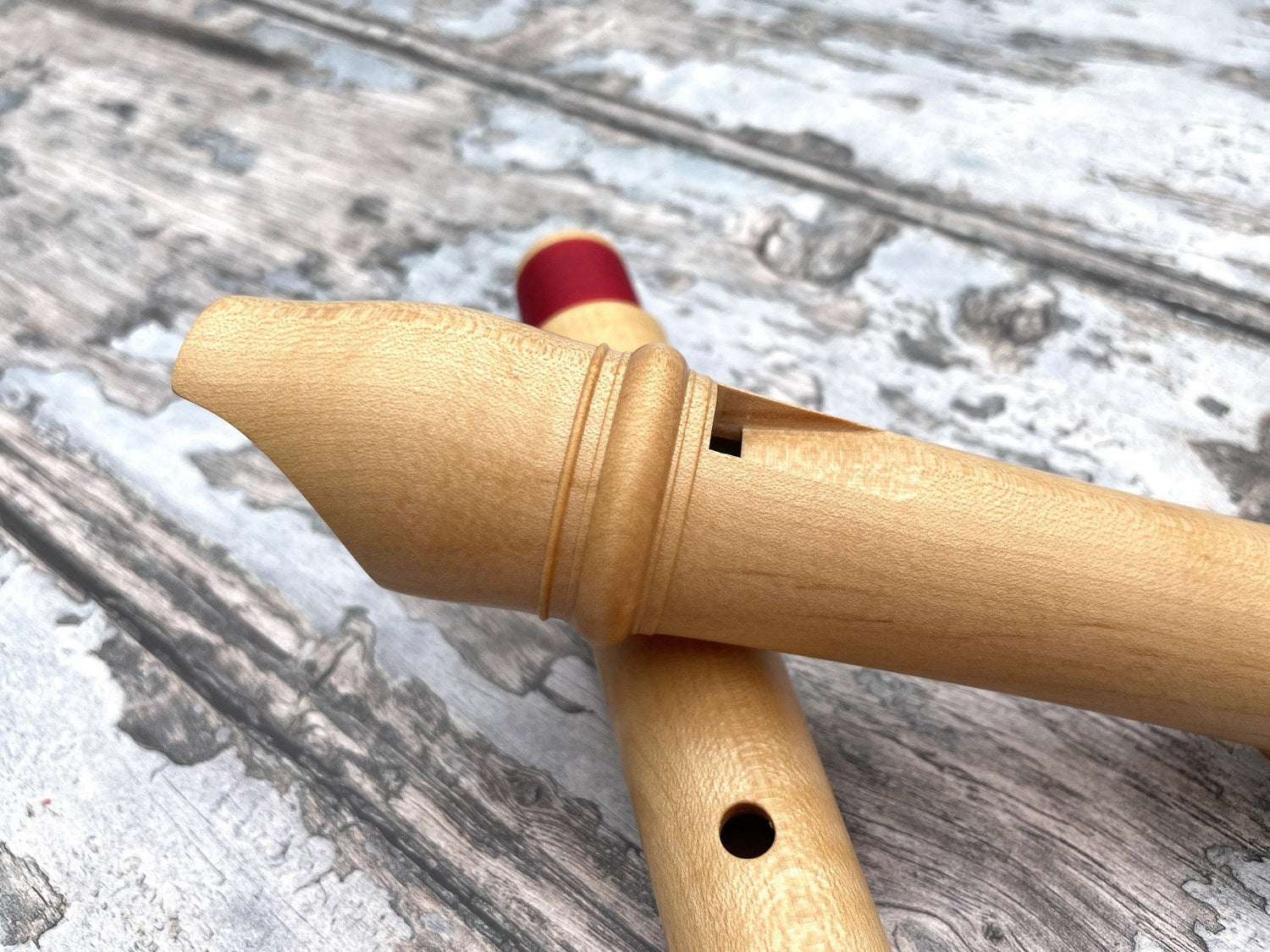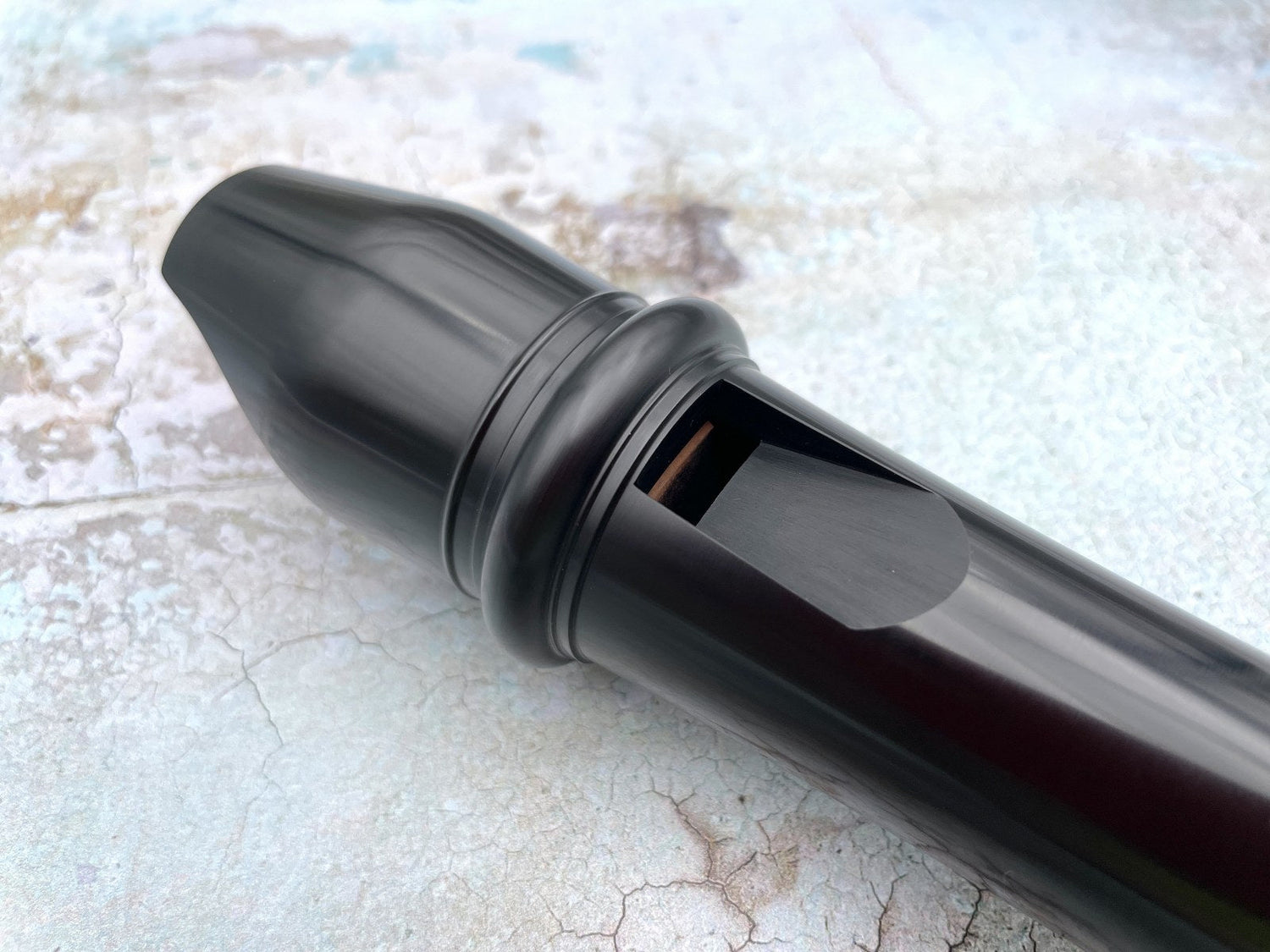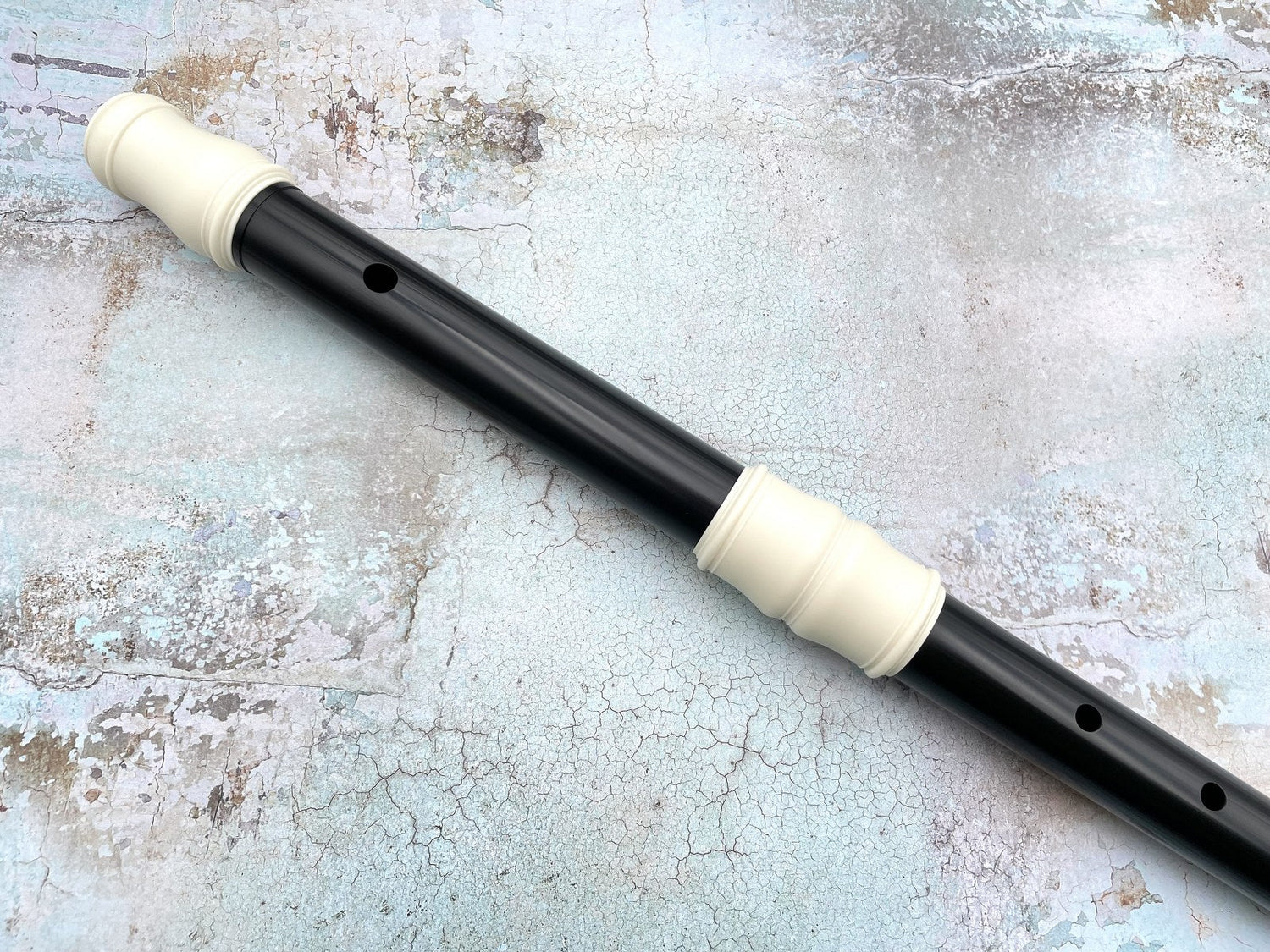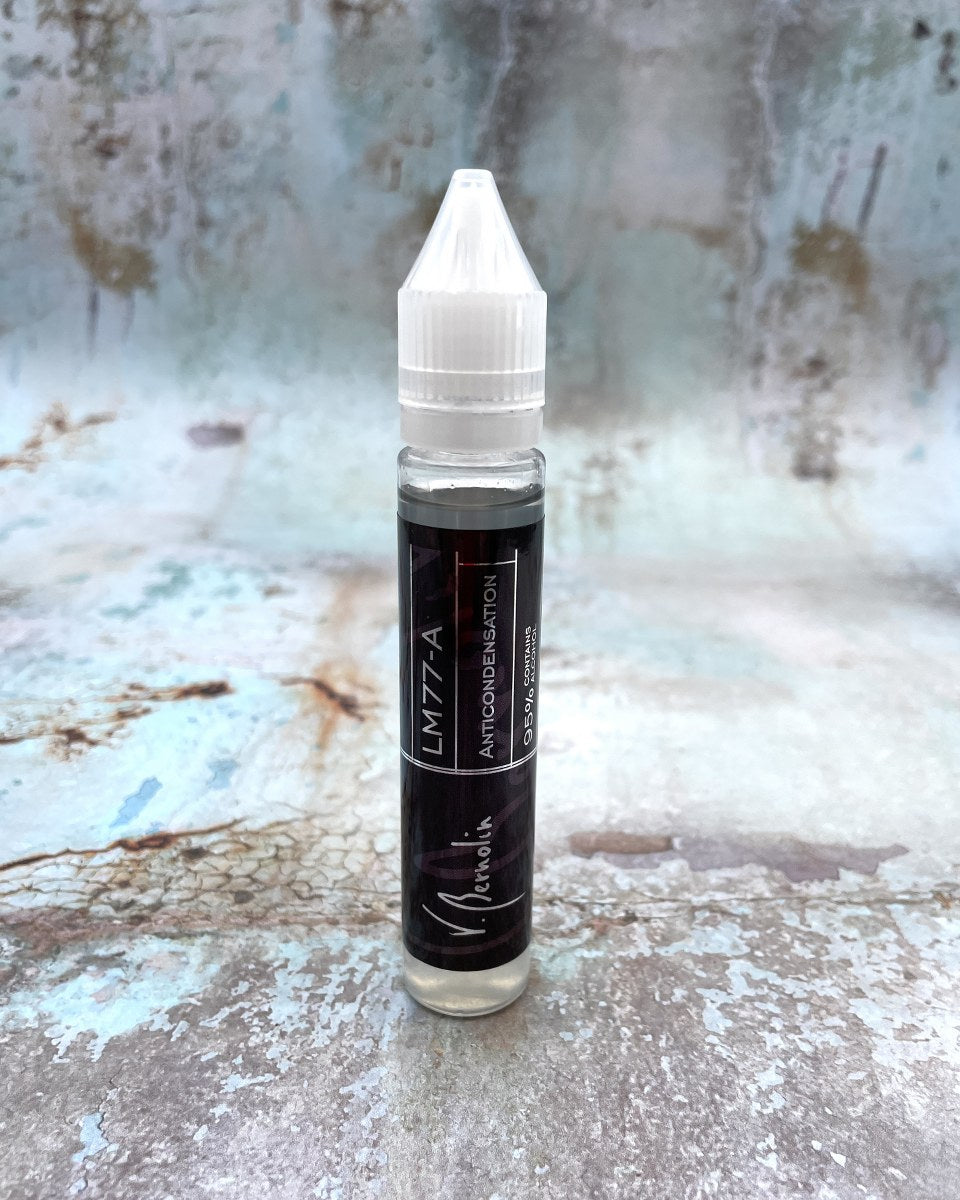Resin Recorders
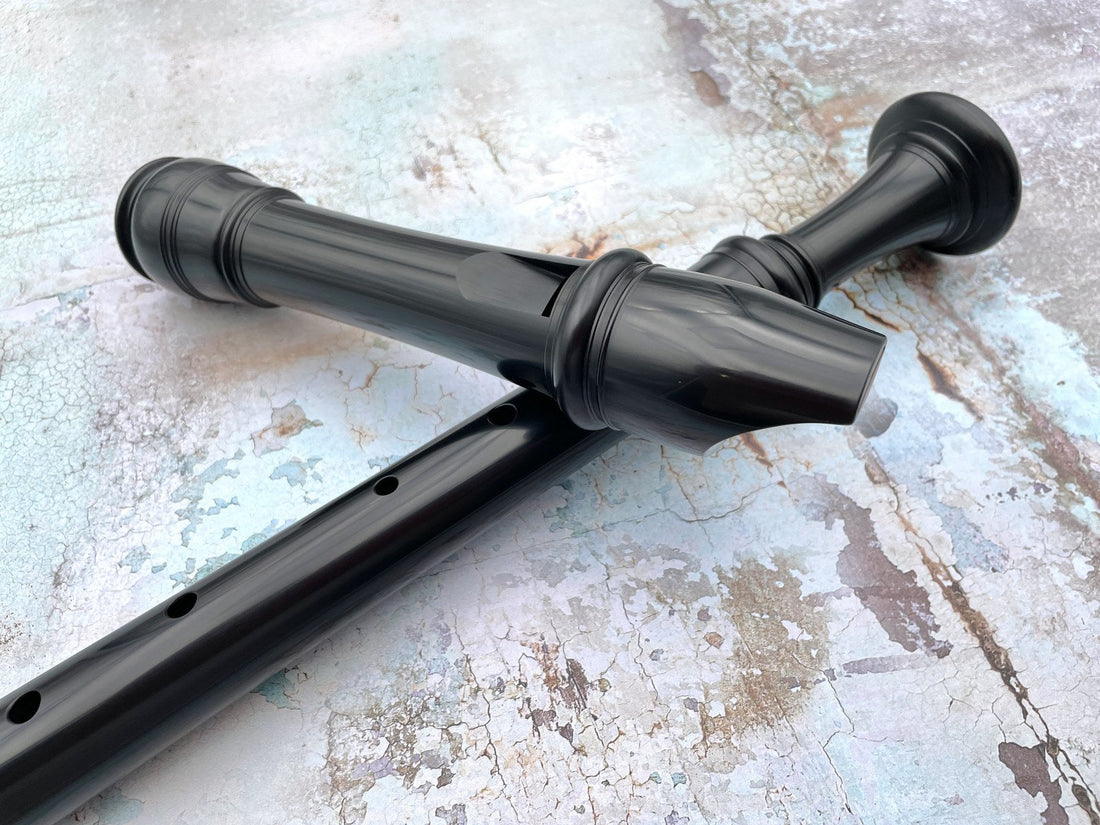
Partagez
Resin Recorders
After a long development process, I am pleased to offer these resin recorders of exceptional quality as an alternative to industrially-produced plastic recorders.
These hand-finished instruments after Thomas Stanesby, available at the pitches 442 Hz and 415 Hz, have all the features of professional recorders created: curved labium and windway, undercut toneholes, cedar block, variable-taper bore, tapered block, etc.
This Ebony-colored resin allows for a wide range of timbres. Depending on the model, I have the option of adjusting the mouthpiece for a warm, mellow tone, or at the opposite for greater precision and clarity. The sound is elegant, and in no way comparable to that of injected plastic recorders.
Operation is excellent in all registers, with easy and fast treble.
In addition, these recorders offer the benefots of synthetic polymers: longevity, total insensitivity to water, high resistance to knocks and scratches, etc.
You can listen to two MP3 files made with a Bernolin Resin recorder by clicking on the following links:
Telemann - Fantasy MP3 (1.4 MB) (Recorder: Vincent Bernolin)

Some frequently asked questions:
Why would Bernolin Resin recorders be better than standard plastic recorders?
The reason is essentially a question of manufacturing process. Traditional plastic recorders are injection molded. However, a high-end "factory" instrument cannot be injection molded. It is said to have too much "undercut." To be able to mold (and especially unmold) a plastic recorder, manufacturers are forced to modify its geometry, which results in a very significant degradation of the sound.
Does this resin sound like plastic?
I selected the resin carefully with its sound qualities in mind. Some recorder makers already offer plexiglas or synthetic ivory recorders, and the result is quite convincing. This shows how synthetic polymers can be a valid alternative to traditional materials.
Can I play my Bernolin Resin flute all day?
Yes, as long as your energy allows!
Does my Bernolin Resin recorder clog like other plastic recorders?
No. Condensation is linked to several windway parameters: air flow, condition of the surfaces, surface tension and temperature. I have dealt with the first three parameters, you will be responsible for the fourth. You will not experience more problems with Bernolin resin recorders than you would with a good wooden recorder recorder. You need only warm the head in your belt as you do with with your other instruments. Occasionally you can apply some dilute liquid soap in the windway. This advice is intended only to standard recorders.
The new LM-77 Anti-condensation can provide you with another solution to this problem, if you regularly have issues with your recorders.
Where was my Bernolin Resin flute made?
It was entirely made in France in my workshops.
What precautions should be taken regarding its maintenance?
Resin recorders are only afraid of falls. They do not require any break-in, neither do they need oiling or grease on the sockets, and can also be cleaned as often as necessary with 95% alcohol. This asset proved decisive during the COVID-19 epidemic, but remains remarkably useful today.
How does my Bernolin Resin flute position itself in terms of sustainable development?
Sustainability issues are primarily related to disposable and low-quality products. Manufacturing a resin instrument requires less energy and generates less waste than a wooden flute, and it is virtually indestructible. In this respect, the resin flute is particularly remarkable.

How come the price is so low for an instrument of this quality?
The base material is inexpensive, the precision of the technology used, and the overall stability of the instrument allow for the avoidance of alterations. The goal is to offer an instrument accessible to as many people as possible. I hope in this way to democratize the quality flute to some extent.
What is the procedure for placing an order and what are the delivery times?
All orders can be placed directly on this website. You can pay by credit card, PayPal, or bank transfer. Shipping costs are automatically calculated based on your destination. Delivery times generally range from 1 to 4 weeks.
Who do you think this instrument is intended for?
I intend it for teachers who need a good instrument to give their lessons, and who want to preserve the health of their beautiful recorders. I intend it for students who can afford a virtually indestructible instrument to practice as much as they want. I also intend it for amateurs who want an easy and trouble-free flute, which allows them to progress. And finally, why not, for concert players who need a "backup" instrument of total reliability.
Generally speaking, this instrument is intended to replace industrial recorders, and thus allow one to wait until they can treat themselves to a beautiful wooden recorder.

